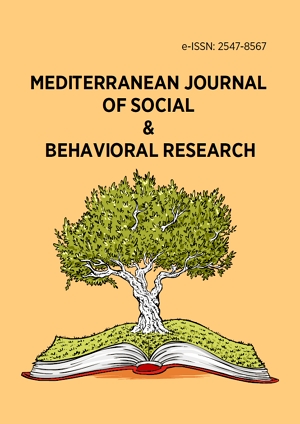Volume 2, Issue 1, July 2018
Research Article
English Online Tutoring: A Study of University Students Learning to Teach Junior High Students
MEDITERR J SOC BEH RES, Volume 2, Issue 1, July 2018, 3-7
https://doi.org/10.30935/mjosbr/8381Research Article
Strategic Academia – Industry Partnerships, Incubations and their Outcomes: A Holistic View
MEDITERR J SOC BEH RES, Volume 2, Issue 1, July 2018, 9-17
https://doi.org/10.30935/mjosbr/8382
